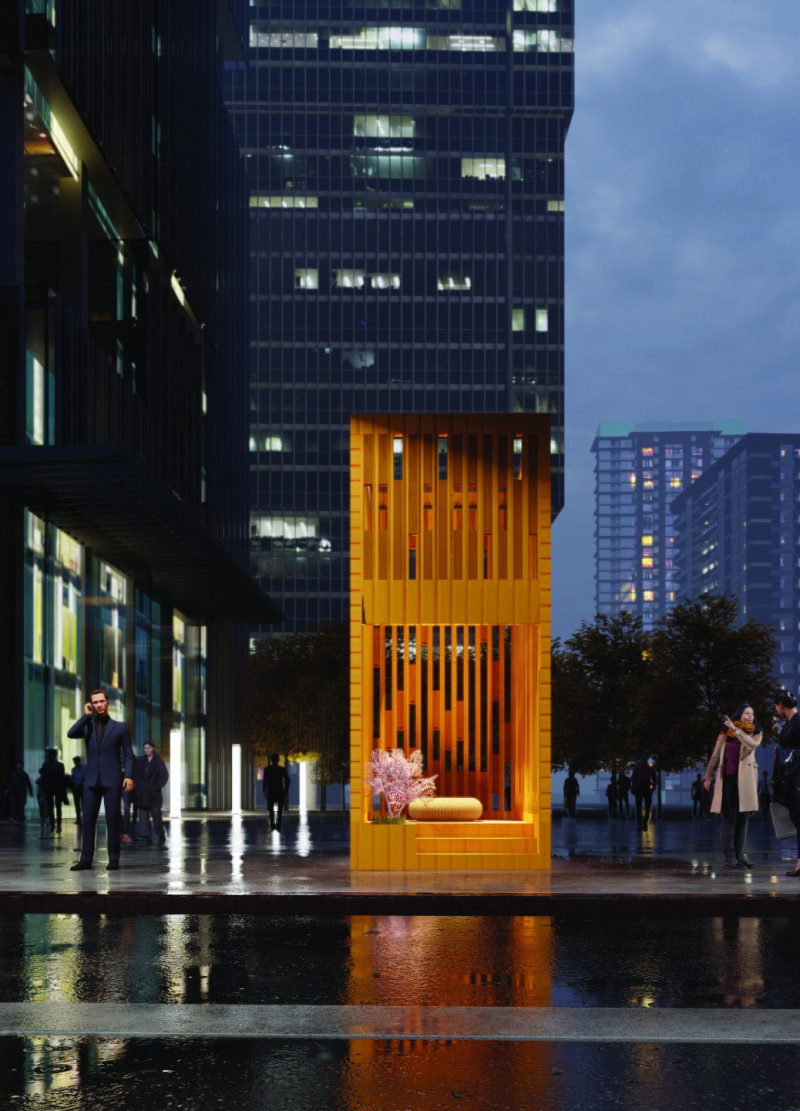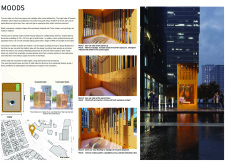5 key facts about this project
The architectural design captures the essence of finding tranquility in the busy environment of Tokyo. It serves as a place for residents to retreat, facilitating meditation and moments of calm amidst urban distractions. The overall concept is built around creating adaptable spaces, allowing users to connect with their inner peace while engaging with the social aspects of city life.
Dynamic Panel System
An innovative sliding panel system is a key feature of the design. Users can adjust these panels to control the amount of light in the space. When the panels are raised, natural light fills the interior, encouraging social interaction. Alternatively, lowering the panels creates privacy and reduces sunlight, making the environment more personal and reflective. This user-driven adaptability shapes how individuals experience their surroundings.
Structural Framework
Timber is central to the structure, adding both strength and warmth. The design includes four vertical bearing elements made from solid timber, providing durability. Advanced joinery techniques connect these posts securely, ensuring that the building can withstand seismic activity while remaining lightweight. This approach highlights a respect for traditional craftsmanship and a commitment to sustainability in the design.
Exterior Treatment
The exterior features a mix of solid and hollow panels arranged thoughtfully. This arrangement captures interest visually while allowing residents to interact with the environment actively. The panels can be adjusted for various configurations, enabling users to create spaces that suit their needs. This connection between the design and its occupants enhances a sense of well-being in the urban landscape.
Entrance Design
An overhead sliding mechanism forms the entrance, facilitating easy access and creating smooth transitions into the space. This choice aligns with the design's focus on fluidity, encouraging effortless movement for users. The entrance detail reflects a dedication to functional design, ensuring that users immediately feel a sense of connection to the environment as they enter the building.




















































